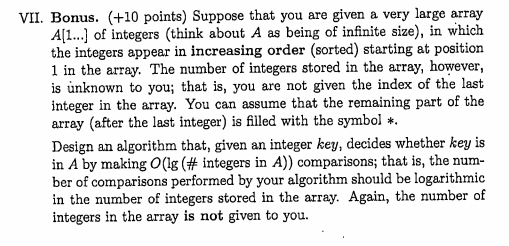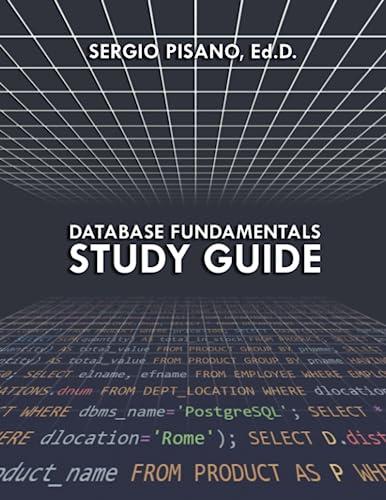Answered step by step
Verified Expert Solution
Question
1 Approved Answer
VII. Bonus. (+10 points) Suppose that you are given a very large array A[1...) of integers (think about A as being of infinite size), in

Step by Step Solution
There are 3 Steps involved in it
Step: 1

Get Instant Access to Expert-Tailored Solutions
See step-by-step solutions with expert insights and AI powered tools for academic success
Step: 2

Step: 3

Ace Your Homework with AI
Get the answers you need in no time with our AI-driven, step-by-step assistance
Get Started


